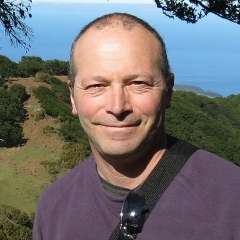There are few operas both more suitable and more challenging than Prokofiev's War and Peace to mark a new chapter in a company's life. With a cast calling on dozens of named roles, the requirements of a large orchestra and chorus and with an almost Wagnerian length, it can’t fail to make a statement. As such, it is still a rarity on stage, yet hot on the heels of Welsh National Opera's production, marking David Pountney’s imminent departure from Cardiff, director Jens-Daniel Herzog now launches his tenure as intendant in Nuremberg with the same work, in doing so providing a showcase for his newly reconstituted ensemble comprising several singers brought with him from his previous theatre in Dortmund. The production also marks the arrival of Joana Mallwitz as Staatstheater Nürnberg’s new music director, following her move from Erfurt (I heard a superb Pelléas from her as a guest in Frankfurt last year).
War and Peace had a fraught gestation, with Prokofiev having to engineer his reworking of Tolstoy's massive tome to appease the Soviet cultural authorities and create something potent for the war effort. He was still reworking parts of it at the time of his death and never got to see the whole opera on stage, which gives some justification for conductors and directors to make their own decisions about how much of nigh on four hours of music they should use. This Nuremberg take on the work comes in at under three and half hours, including half-hour interval, and seems to convey everything of the story without feeling bloated.
Despite this relative concision, Herzog stretches the opera across two centuries of Russian history, with four temporal focuses that merge and intermingle in the costuming and setting: the historic period of the original story; the time the novel was written (1860s), when the aristocracy depicted was already in degenerate decline; the Second World War when the opera was composed and when Russia similarly had to face a foreign invader; and Russia today, where again the people are being encouraged to seek inspiration in a glorious past by a leader who some would accuse of having, incidentally, a Napoleon complex. Despite the huge number of performers involved, and within a flexible set of modular, distressed black walls, Herzog manages to keep the focus on the characters.
He makes things easier, too, by projected a running commentary on to the scenery, thus helpfully introducing us by name to the main protagonists as they arrive at the ball in Scene 2 (including the tsar in the visual guise of Putin). The narrative flow is sleek, and if a few cliched directorial tropes sneak in – the tramp with the shopping trolley; extras having a sexual free-for-all; chorus members stripping down to their underpants (at least this is a legitimate way to depict the freezing to death of the French foe) – there are comparable moments of great dramatic intensity, such as the set crashing down as Moscow burns, and the intimate focus on the wounded Andrei’s death in Natasha’s arms.
With such a large and accomplished ensemble cast, it seems almost unfair to pick out individual singers for praise, but the central trio was in a class of its own: Eleonore Marguerre’s detailed and vocally nuanced exploration of the character of Natasha, Jochen Kupfer’s nobly sung Andrei and Zurab Zurabishvili’s conflicted, passionate Pierre. And to name-check just a few of the numerous subsidiary roles of note, Tadeusz Szlenkier’s Anatole, Sangmin Lee’s Napoleon, Martina Dike’s Akhrosimova and Martin Platz’s Platon all stood out. The expanded chorus was large enough to fill the stage as both the Russian masses and the French army, and sang throughout with both force and refinement. And the orchestral playing was on fire under Mallwitz’s energised conducting: both the lyricism and immense power of Prokofiev’s music were conveyed to the full. There was a palpable sense at the final applause of the new musical and directorial teams having won the battle for the hearts and minds of its Nuremberg audience.




